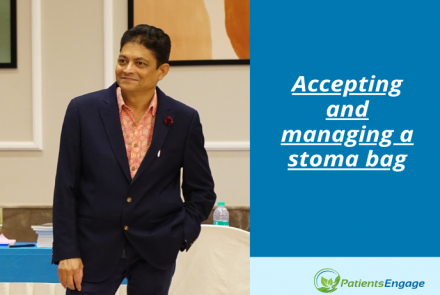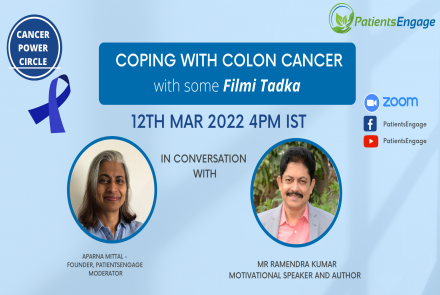
Follow-up care
Follow-up care is important to maintain good health after treatment and to watch for signs of recurrence. Follow-up care is extremely important in the first five years after treatment because risk of recurrence is highest during this time. In colorectal cancer, 80% of recurrence occurs in the first 2-3 years after surgery and 95% occurs within 5 years.
Follow-up care includes:
- Physical examination every 3-6 months
- CT scan of chest and abdomen every 6-12 months
- Colonoscopy one year after surgery
Nutrition
Immediately after colon surgery, the patient cannot take food orally until the bowel heals. Once bowel function becomes normal for digestion, start with a diet that is soft and low in fibre. Soft diet is recommended for 2 to 8 weeks after surgery. Then, slowly return to a regular diet, depending on how your body is tolerating particular foods. Different people have different tolerance level for food after colon surgery. Here are some tips:
- Eat small and frequent meals. Avoid long gaps in between meals.
- Eat food that is soft such as soup and yoghurt
- Start with a low fibre diet such as white bread, pasta
- Eat lots of proteins, such as eggs, fish, lean meat
- Drink lots of water
- Avoid eating raw vegetables. Too many fruits and vegetables can upset the digestive system after colon surgery.
- Avoid food that produces gas, such as broccoli, cauliflower, cabbage, beans, lentils etc
- Avoid fatty foods
- Avoid sugary food and drinks
- Physical fitness
Fitness
Staying active during and after treatment can improve survival rate and reduce the risk of recurrence of colon cancer by 50 per cent. Do some light exercises like brisk walking or yoga, which can also reduce stress and help you relax.
Take charge – Your action plan
- Be informed. Learn as much as you can about your condition. Talk to your doctor about your condition, treatment and prognosis. Read up about colorectal cancer, so you know what questions to ask your doctor. Speak to other patients to find out what treatments and therapies have worked for them. Being informed keeps you in charge of your health and treatment.
- Nourish your body. Make sure you are giving your body the nutrition it needs. Eat, even if you don’t feel like it.
- Exercise moderately when you are able to
- Stay positive. Join a support group. Talk to people facing similar challenges. Talk to family and friends about your feelings. Read books that offer encouragement.
- Stay focused on your treatment with timely follow-ups and healthy lifestyle.
Know your support team: Who can help you stay healthy
- Gastroenterologist
- Medical oncologist
- Surgeon
- Radiation oncologist
- Dietitian
- Counsellor or mental health practitioner
- Other specialists depending on your condition

















